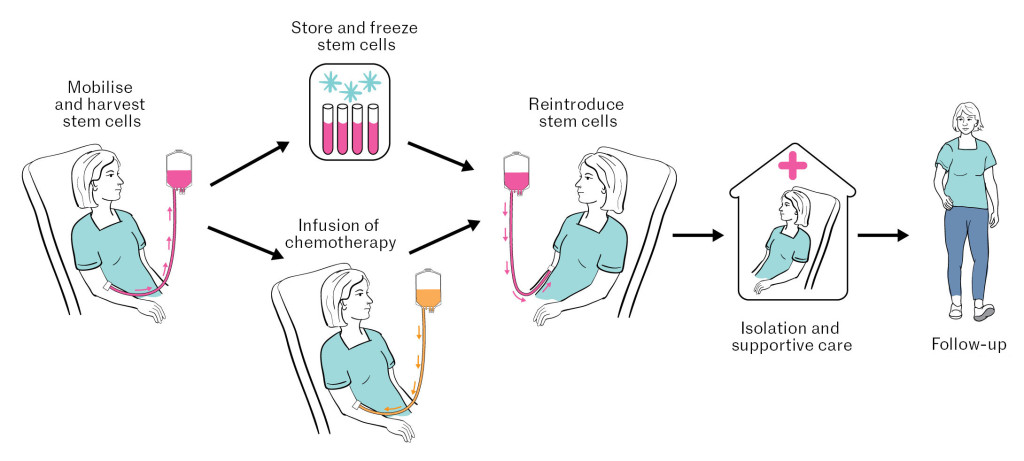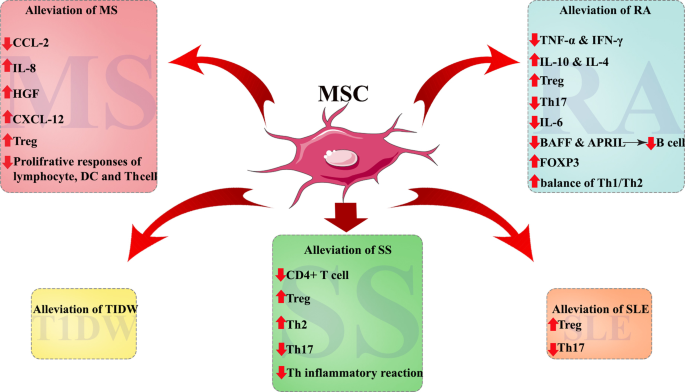Some Known Questions About Regenerative Medicine For Multiple Sclerosis.
Some Ideas on Regenerative Medicine For Multiple Sclerosis You Should Know
Table of ContentsWhat Does Regenerative Medicine For Multiple Sclerosis Mean?The Best Guide To Regenerative Medicine For Multiple SclerosisThe Best Guide To Regenerative Medicine For Multiple SclerosisFascination About Regenerative Medicine For Multiple SclerosisThe 6-Minute Rule for Regenerative Medicine For Multiple SclerosisThe Basic Principles Of Regenerative Medicine For Multiple Sclerosis Little Known Questions About Regenerative Medicine For Multiple Sclerosis.
Ever since, lots of cell treatment tests have actually been carried out around the globe. In 2013, Ardeshirylajimi and colleagues systematically examined medical tests on stem cells when it come to its use in the therapy of MS (Ardeshirylajimi 2013). Medicine therapy can be advantageous for some people in the key training course of the condition, resulting in lower regression rates, yet it is useless in the progressive neurodegenerative phase.They reported that bone marrow MSCs are risk-free and may lower inflammatory criteria. The regrowth of sores with the replacement of the damaged oligodendrocytes or nerve cells utilizing neural stem cells is an additional appealing perspective for future treatment of MS. Zhang and colleagues created neural stem cells from generated pluripotent stem cells (iPSCs) and transplanted the created cells into a pet model of MS.
Human embryonic stem cell treatment was used to treat 2 patients with MS and results indicated that this treatment may be efficient and risk-free (Shroff 2016). Several little, openlabel research studies in patients with progressive MS have reported prospective energy of autologous (acquired from the same individual) MSC in the therapy of MS, as well as no serious damaging events (Mohyeddin 2007; Karussis 2010; Yamout 2010; Harris 2016).
There is continued demand for more efficient treatments for MS. Stem cell treatments are being discovered as a prospective way to address this unmet demand. The one-of-a-kind residential or commercial properties of stem cells make them promising prospects for therapies that can reduce MS condition task. There are various kinds of stem cells, and encouraging research study is underway to establish just how stem cells work, whether using stem cells to deal with people with MS is secure and efficient, and which kinds of MS might gain from different stem cell treatments.
The smart Trick of Regenerative Medicine For Multiple Sclerosis That Nobody is Talking About
The term 'stem cell therapy' describes any treatment that includes stem cells or their items. There are several kinds of stem cells, and several kinds of stem cell treatments. A lot of these treatments are being researched in professional trials. The only stem cell therapy that currently need to be approved as a treatment for MS outside of medical trials is autologous Hematopoietic Stem Cell Transplantation (aHSCT), for which there is enough proof regarding potential advantages, risks and side effects.
Specialists have located that these unproven treatments are being marketed to people with MS, in spite of a full lack of scientific evidence. It is essential for individuals to have the most effective readily available information to make decisions associated with their MS treatment. Each individual's situation is distinct and decisions concerning any MS treatments taking into factor to consider the potential advantages, dangers and negative effects for a person's certain situations should be made in mindful examination with each person's neurologist.
Regenerative Medicine For Multiple Sclerosis Things To Know Before You Get This
This treatment attempts to 'reformat' the person's body immune system, and stop the inflammation that adds to active, falling back MS or active, progressive MS. Nevertheless, these stem cells are not able to restore broken nerves or various other components of the brain and spine. This layout, showing the aHSCT process, comes from MS Australia.

A number of professional tests are occurring across the globe, aiming to completely comprehend the benefits and risks of aHSCT in MS, just how it compares to other extremely extensive DMTs, and which individuals with MS might benefit most from this approach. Scientific tests to date have actually shown that for relapsing MS, or dynamic MS with signs of active swelling, aHSCT may be able to quit or reduce the progression of MS.
An Unbiased View of Regenerative Medicine For Multiple Sclerosis
The very best prospects are likewise most likely to be under the age of 50, the original source and that are in the earlier, inflammatory phases of MS (had MS for no more than one decade, with reduced to modest degrees of special needs). Regenerative Medicine for Multiple Sclerosis. Most importantly, there is a requirement for more large, gold-standard, randomised controlled tests especially for MS, which compare aHSCT to presently offered MS treatments.
The Basic Principles Of Regenerative Medicine For Multiple Sclerosis
A current international cooperation, the MESEMS (mesenchymal stem cells for MS) test, which was partially moneyed by MSIF, revealed that MSC therapy was secure and well endured but was not effective at reducing inflammation in people with active types of multiple sclerosis. To find out more click right here. For even more detailed details regarding present research study programs concentrated on stem index cell therapy, consisting of aHSCT, MSC treatment, neural stem cell treatments and other types of stem cell research study, look at several of our participant organisations' websites: The details on this page was developed in conjunction with experts from MSIF's International Medical and Scientific Board and clinical personnel from our participant organisations - Regenerative Medicine for Multiple Sclerosis.

A medical diagnosis of numerous sclerosis (MS) can feel like a life sentence of constraints. For many years, people dealing with MS have been told to handle their signs and reduce the development of the disease, however a true remedy stayed elusive. At Allure Regenerative Medicine, we're right here to tell you that a brand-new age of treatment opportunities is arising.
Numerous sclerosis is an autoimmune condition, suggesting the body's own body immune system mistakenly assaults healthy cells. In the case of MS, the immune system targets the myelin sheath, a protective covering that borders nerve fibers in the mind and back cable. Regenerative Medicine for Multiple Sclerosis. This attack interferes with the transmission of nerve signals, bring about a variety of signs and symptoms, including: A persistent sensation of fatigue and reduced power
What Does Regenerative Medicine For Multiple Sclerosis Do?
Problems with memory, concentration, and refining details. Obscured vision, double vision, or also loss of vision. Different sorts of pain and sensory disturbances throughout the body. Conventional MS therapies normally focus on 2 primary techniques: These drugs description intend to suppress the immune system's assault on myelin. While they can help in reducing relapses and sluggish condition progression, they additionally include the danger of side impacts and enhanced vulnerability to infections.
This is where regenerative medicine provides a paradigm change in MS therapy. At Allure Regenerative Medicine, we're not just offering therapies; we're supplying a partnership. We recognize that browsing the world of regenerative medicine for MS can feel overwhelming, and we're below to lead you every step of the way.

Some Known Incorrect Statements About Regenerative Medicine For Multiple Sclerosis
We're confident that at Appeal Regenerative Medicine, you'll discover a group that is absolutely invested in your well-being and dedicated to helping you attain the most effective possible outcomes on your journey with MS. We're right here to answer your concerns, resolve your problems, and give steady assistance every action of the way.